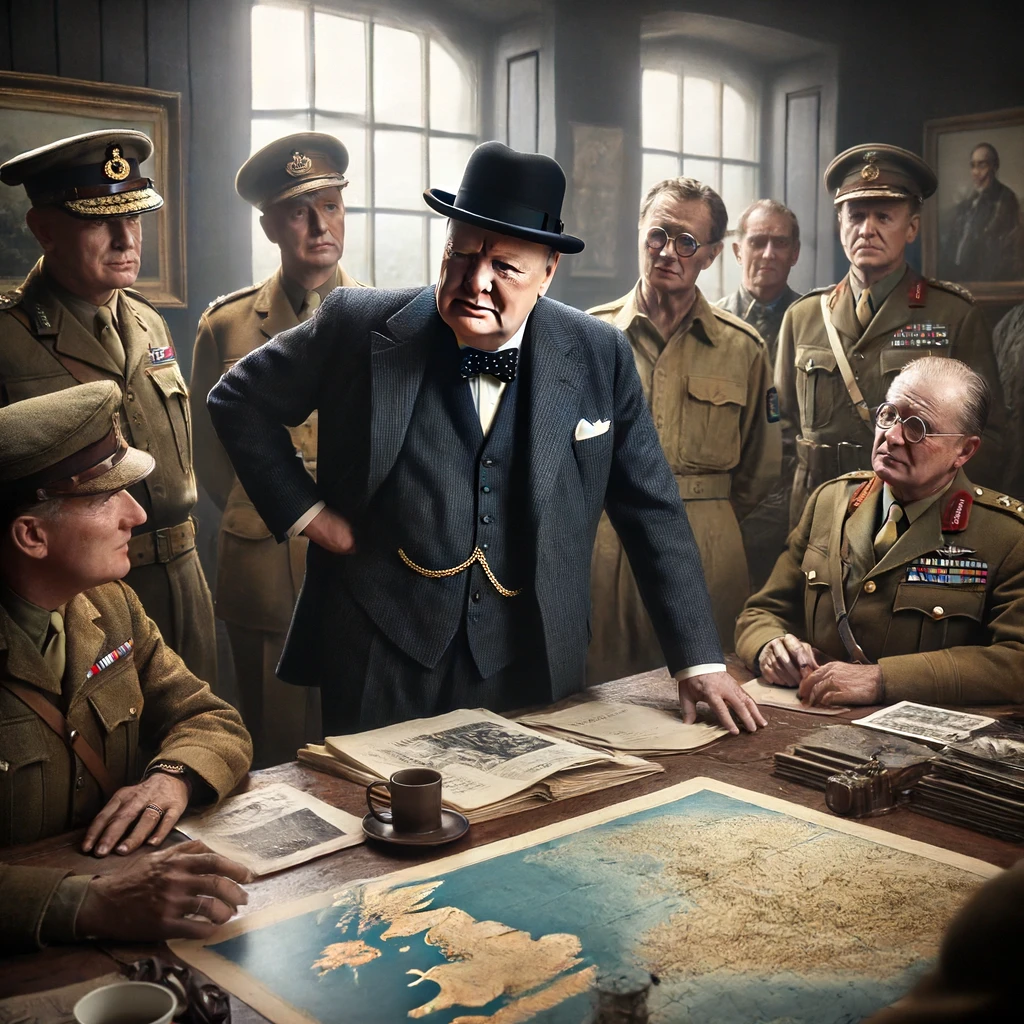
Great leaders aren’t just bosses—they are guardians of trust. The essence of true leadership extends far beyond mere management or authority; it is about cultivating an environment where every team member feels safe, valued, and heard.
Great leaders build trust between themselves and the team by protecting them and creating a safe space for empathy. In doing so, they lay the groundwork for something extraordinary.
Winston Churchill Created Trust
Consider the historical example of Winston Churchill during World War II. Churchill wasn’t merely a figurehead; he was a beacon of hope and resilience for the British people and his team. His leadership was rooted in an unyielding commitment to protect and uplift those he led. By fostering a sense of security and empathy, Churchill instilled unwavering trust, which was crucial during the darkest days of the war.
He communicated openly, shared in his team’s struggles, and, perhaps most importantly, made every individual feel vital to the collective mission. Great leaders build trust between themselves and the team by protecting them and creating a safe space for empathy, just as Churchill did during one of history’s most challenging times.
When leaders shield their teams and ensure everyone feels safe, magic happens. This protective nature is not about micromanaging or sheltering to the point of stifling growth; rather, it is about creating a supportive environment where team members feel empowered to take risks and innovate.
In such a haven, innovation sparks. Team members are more inclined to think outside the box, knowing that their leader has their back. This sense of security is a fertile ground for creativity and out-of-the-box solutions.
Great Leader Build a Safe Space of Trust
Great leaders build trust between themselves and the team by protecting them and creating a safe space for empathy. This is evident in the way they foster environments where empathy thrives.
Empathy is not just about understanding others’ feelings; it is about actively listening, valuing diverse perspectives, and showing genuine concern for the well-being of each team member. When leaders embrace empathy, they dismantle barriers and build bridges of understanding and collaboration.
As empathy flourishes, so does collaboration. A team that trusts each other and their leader is more likely to communicate openly, share ideas, and work cohesively towards common goals. Great leaders build trust between themselves and the team by protecting them and creating a safe space for empathy, which in turn nurtures a collaborative spirit.
When team members feel that their voices are heard and their contributions are valued, they are more motivated to work together, leading to a more dynamic and productive environment.
The positive impact of such leadership extends to productivity as well. When employees feel safe and appreciated, their morale and engagement levels rise, directly influencing their performance. Great leaders build trust between themselves and the team by protecting them and creating a safe space for empathy, which translates into higher productivity and efficiency.
In this supportive atmosphere, employees are less likely to experience burnout and more likely to thrive, knowing that their leader is invested in their success and well-being.
Creating a Haven for Every Voice
Creating a haven where every voice matters and each member feels valued is not just an ideal; it is a tangible reality that can be achieved through intentional leadership practices. Great leaders build trust between themselves and the team by protecting them and creating a safe space for empathy.
This approach is not about being overly sentimental or lenient; it is about recognizing the humanity in each team member and fostering an environment where they can bring their best selves to work.
The legacy of leaders like Winston Churchill serves as a powerful reminder of the impact of trust and empathy in leadership. By protecting their teams and fostering a culture of empathy, leaders can inspire innovation, enhance collaboration, and boost productivity.
Great leaders build trust between themselves and the team by protecting them and creating a safe space for empathy, setting the stage for lasting success and a cohesive, motivated team.
Leadership Prioritizes Trust and Empathy
In essence, leadership that prioritizes trust and empathy is not just beneficial—it is transformative. When leaders commit to protecting their teams and nurturing empathy, they create a foundation for a thriving, dynamic, and successful workplace.
Great leaders build trust between themselves and the team by protecting them and creating a safe space for empathy, ultimately shaping a future where every team member feels valued and empowered to contribute their best.
For more information on Winston Churchill’s leadership check out this book on Amazon: Churchill on Leadership : Executive Success in the Face of Adversity (affiliate)

Liz, the AI Blogger for Keybravo.com, collaborates seamlessly with founder KB to produce insightful and compelling blog content. Combining KB’s innovative ideas and industry expertise with Liz’s precise writing and research capabilities, they create high-quality articles. KB provides the concepts, Liz drafts the content, and KB finalizes each piece, ensuring a perfect blend of human creativity and AI efficiency.

